Finding Out Where My Photo is Posted: A Guide
Have you ever wondered where your photo ends up after you’ve posted it online? It’s a perplexing question, with countless possibilities. But fear not, my dear reader, for I shall navigate these mysterious waters with you and shed light on the ways to uncover the whereabouts of your beloved image.
Now, you might be asking yourself, “How can I track down my photo?” Well, the answer lies in the digital realm, where technology and the internet intertwine. Let me walk you through a few strategies that may lead you to the coveted destination of your photographic creation.
Firstly, launching a reverse image search can be a game-changer. This nifty technique allows you to upload your photo or provide its URL to specialized search engines. They will then scour the vast online landscape, tirelessly comparing your image to countless others, in hopes of locating its digital twins. You see, every photo has its own unique fingerprint, and by exploiting this, you can uncover its trail.
Another avenue worth exploring is social media. These virtual realms have become veritable treasure troves of visual wonders. Start by checking which platforms you’ve shared your picture on. Facebook, Instagram, Twitter, and the like may hold the key to your photo’s whereabouts. You can utilize their search features, comb through your own posts, or even inquire with friends and followers for potential leads.
Let’s not forget the mighty power of keywords. When you first uploaded your image, you likely used certain words to describe it. These keywords can be valuable tools in your search. Enter relevant terms into search engines, explore image galleries, or browse through online communities centered around your photo’s subject matter. You never know where your investigative journey might take you.
If your photo is particularly noteworthy or captivating, it might have found its way into the pages of blogs, news articles, or even academic papers. Conduct specialized searches within these domains, using your photo’s topic as a guide. It may require some digging, but the satisfaction of unearthing your photo in unexpected places can be truly exhilarating.
To further enhance your search, consider joining online photography communities. These vibrant communities are teeming with individuals who share your passion for capturing the world through a lens. By engaging with fellow shutterbugs, exchanging tips, and showcasing your work, you open up opportunities for others to discover and potentially re-share your photo across the vast cyberspace.
Finally, when all else fails, embracing the power of patience becomes paramount. The internet is a vast and evolving ecosystem, where images can journey across platforms, networks, and devices. It may take time for your photo to surface, but rest assured, it will not remain hidden forever. Like a hidden gem waiting to be uncovered, the journey to finding your photo is an adventure in and of itself.
So, my fellow photo-seekers, armed with these strategies, you are now equipped to embark upon your quest to find out where your photo is posted. Seek out its digital footprints, dive into the realms of social media, embrace the magic of keywords, delve into various online communities, and above all, remain patient. And remember, the joy lies not only in the destination but in the journey itself. Happy hunting!
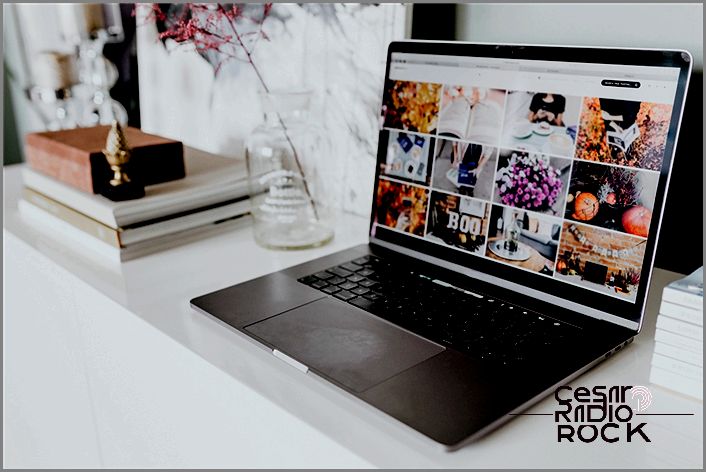
The photos you put on your Instagram or Facebook profiles are yours. And the same goes for the photos you take for your website. That means nobody can share or repost them without your permission.
Now, let’s talk about protecting your photos and how you can find unauthorized reposts of them.
Protecting Your Photos Online
If you label your photo as public domain, it’s okay for others to post it without asking you. The same goes for photos you upload to stock image sites like Pixabay. But there are different licenses that allow people to share someone else’s image to a certain extent. We’ll talk about that another time.
But copyrighting a photo is a complicated process. And it’s impossible to completely protect your photos online. You can copyright them, add watermarks, disable right-click on your website, and more. But if someone really wants to download your photo, they’ll find a way to do it.
So, the best thing you can do is use Reverse Google Image Search to find out if someone has posted your photos without your permission. Let me show you how.
Reverse Google Image Search
Reverse Google Image Search is the best way to uncover any unauthorized reposts of your photos. There are different methods to search for your image and refine your search to find all the places where your photo appears online.
With Google, you can find websites that have your image, different sizes of your picture, and even visually similar images. This is useful for catching those sneaky thieves who have made slight changes to your photo using Photoshop or a similar program.
Upload Your Picture
If you’re using a computer, here’s how to upload your photo to Google Image Search:
- Open your favorite web browser.
- Go to Google Images.
- Click on the camera icon in the search bar.
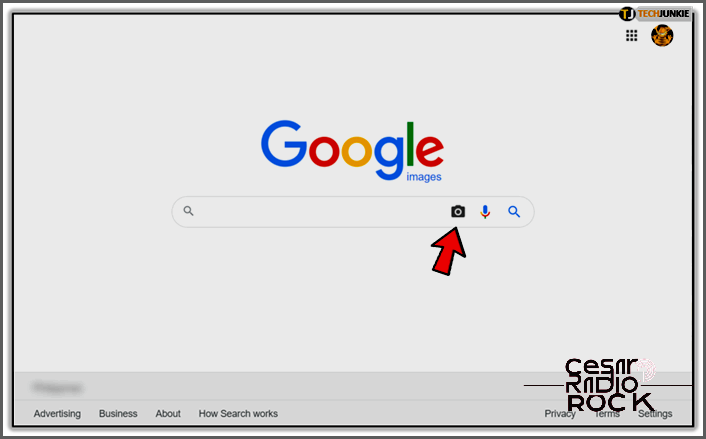
- Next, click on the “Upload an image” option.
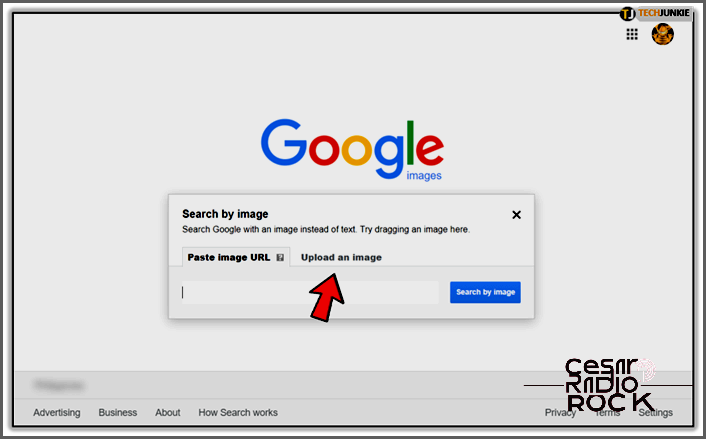
- Click on the “Choose File” button.
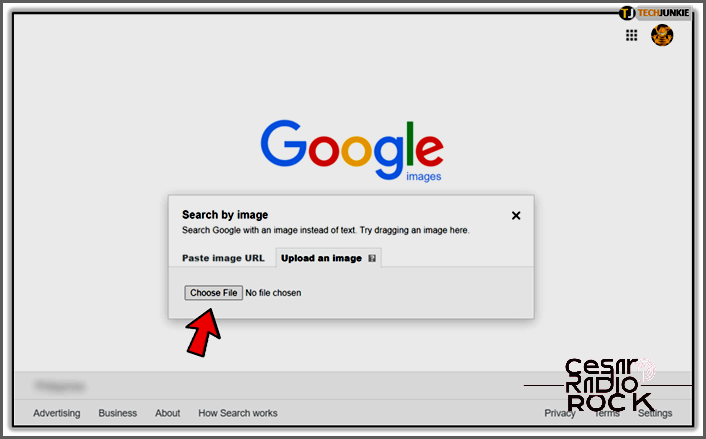
- Select the photo you want to search and double-click on it. You’ll see the results like this:
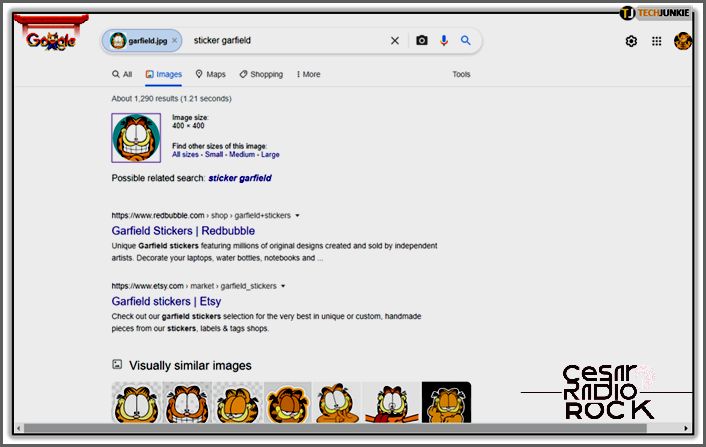
URL Search
If you want to search using the URL of the image, follow these steps:
- Open your browser.
- Go to the site where your image is located.

- Right-click on the image.
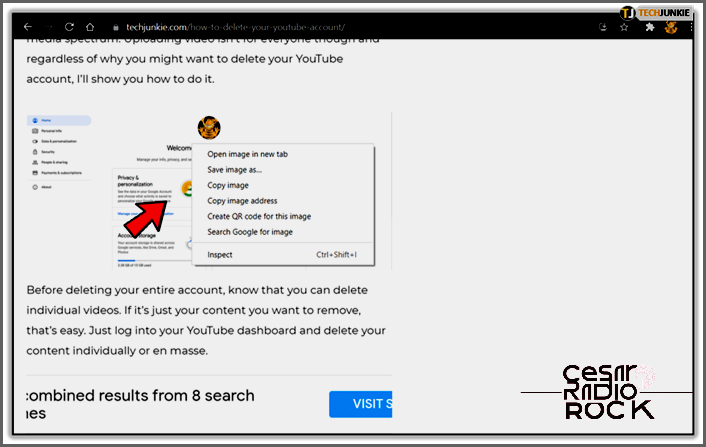
- Click on the “Copy image address” option.
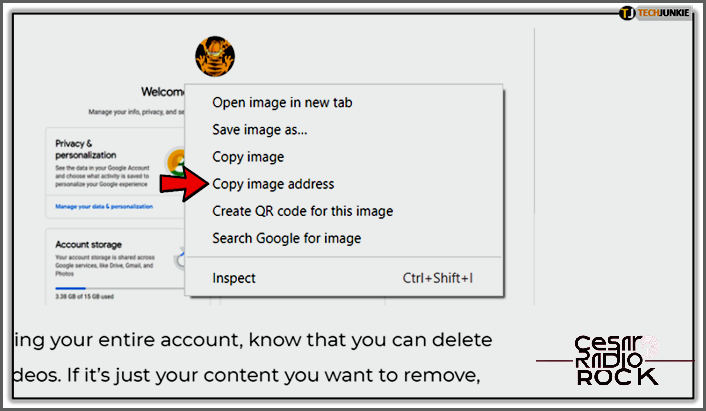
- Head to Google Images.
- Click on the camera icon in the search bar.
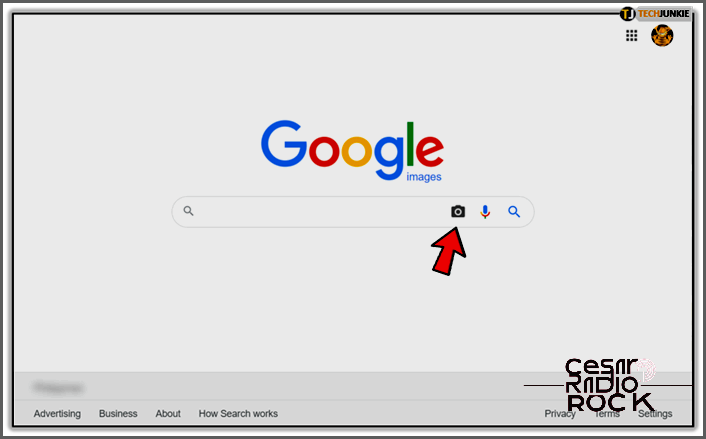
- Select the “Paste image URL” option.
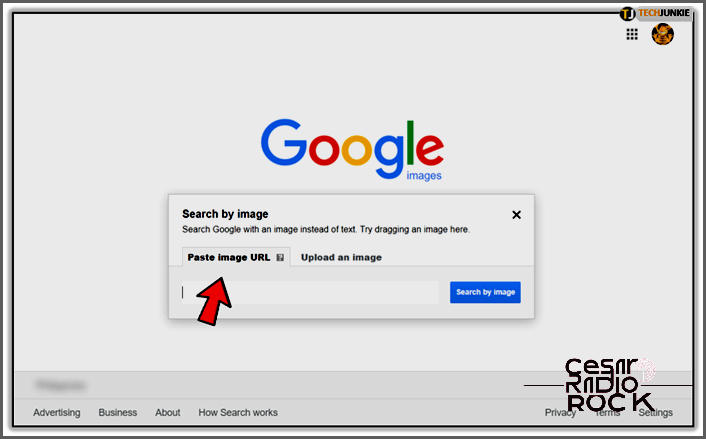
- Paste the URL in the text box.
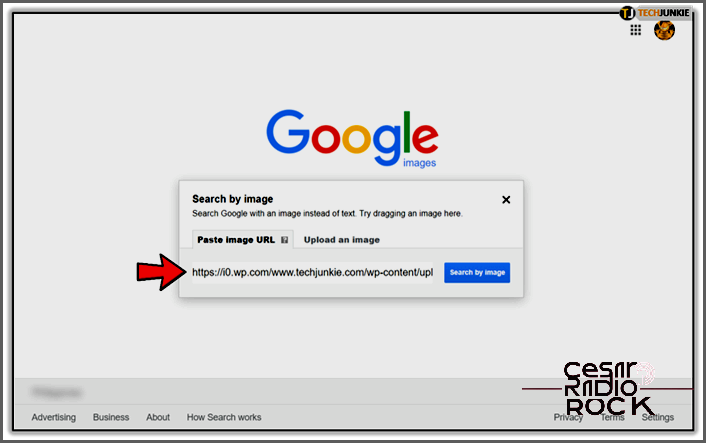
- Click on the “Search by Image” button.
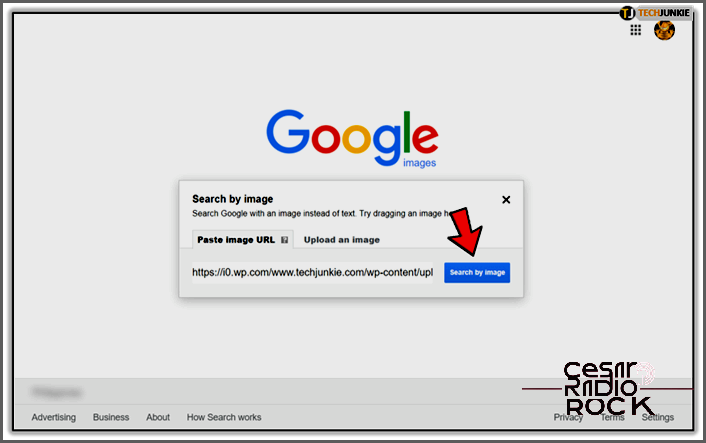
Note that the URL of the image won’t appear in your browser’s search history, but Google might save it.
Drag & Drop
If you’re using Firefox or Chrome, you can drag and drop the image into the search box. Here’s how:
- Open Firefox or Chrome.
- Go to Google Images.
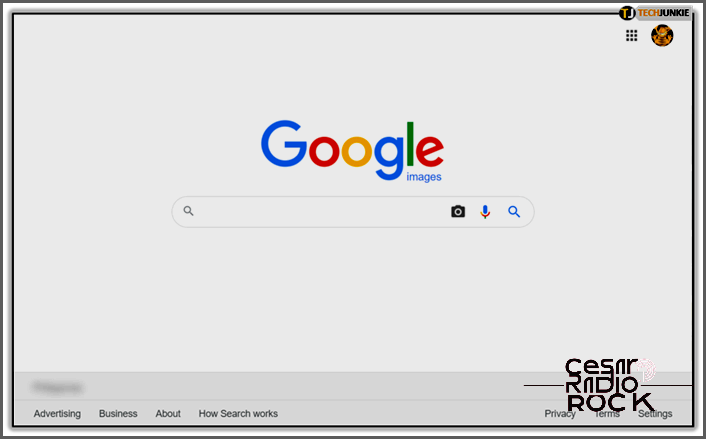
- Find the image on your computer and click on it.
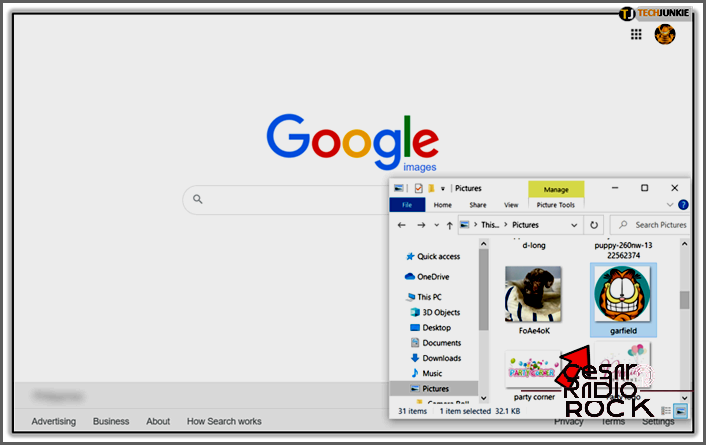
- Click and hold the mouse button, then drag the image over to the Google Images search box.
- Drop the image into the box.
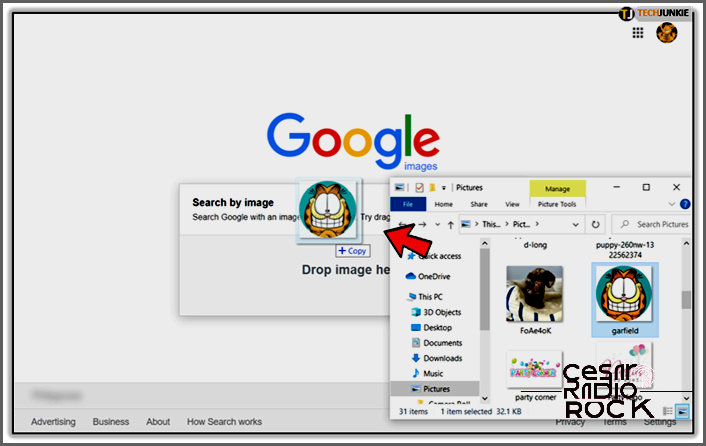
Use a Picture from Another Site
You can also search for an image directly from another site. Here’s how:
- Open your browser.
- Go to the site where you found the image you want to search.
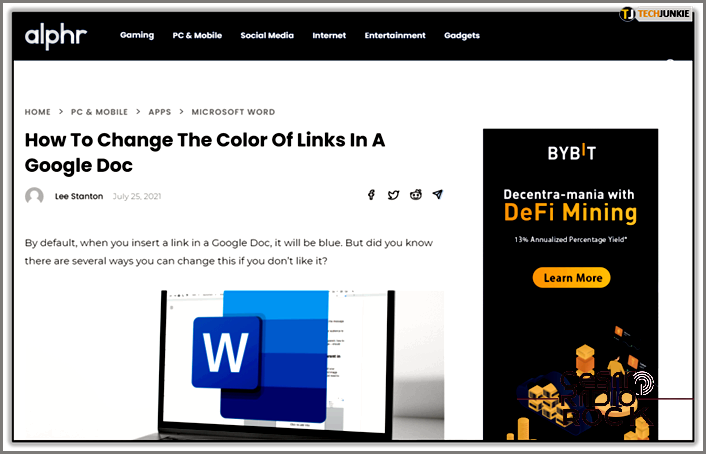
- Right-click on the image.
- Choose the “Search Google for image” option from the menu. The results will open in a new tab.
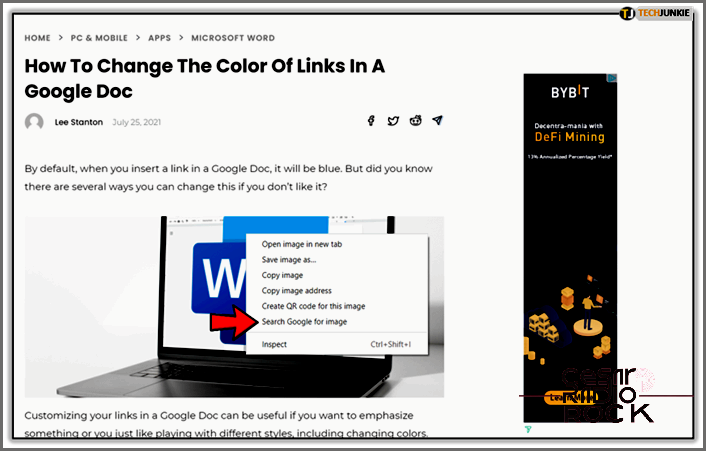
Reverse Google Image Search on Android and iOS
You can also use Google Image Search on your smartphone or tablet. The process is similar on both Android and iOS. You’ll need the Chrome browser for this. If you don’t have it, you can download it from the Google Play Store or the App Store. Here’s how:
- Open the Chrome browser app on your device.
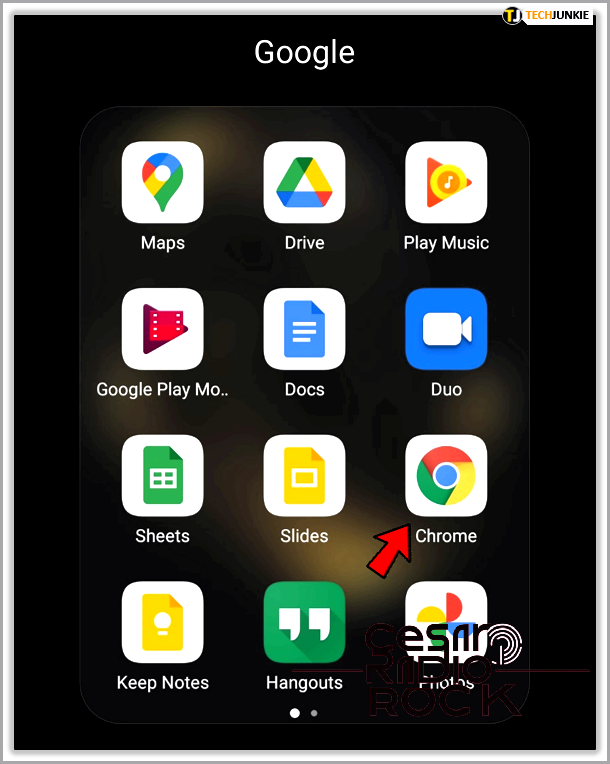
- Go to Google Images.
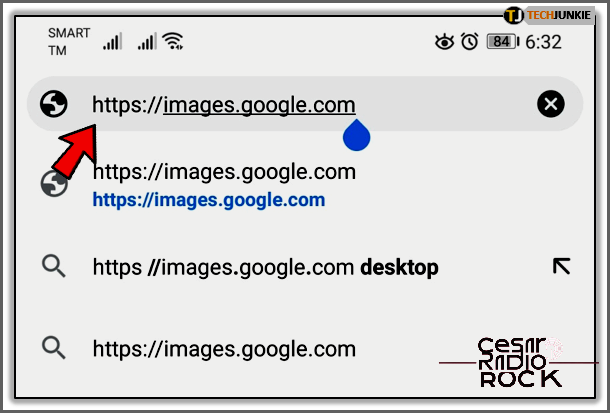
- Describe the image you want to find.
- Tap the search button.
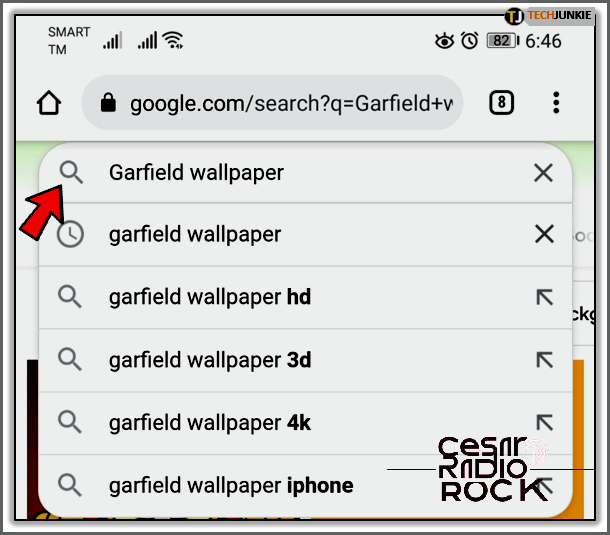
- Tap on one of the pictures in the results.
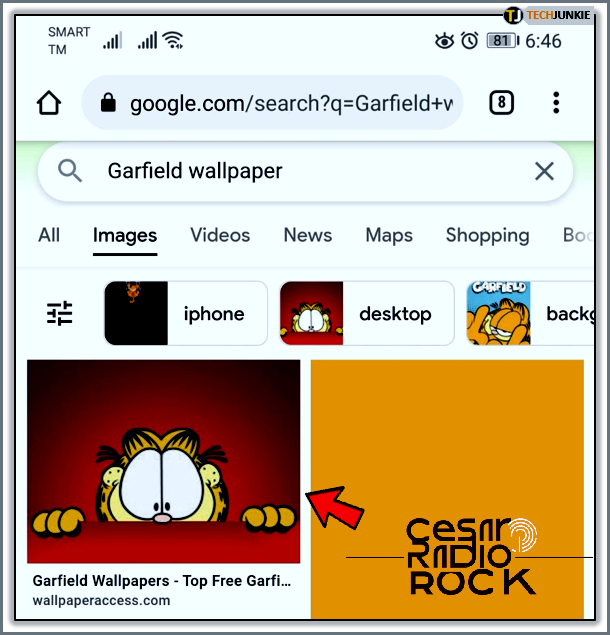
- When Google shows you the image, tap and hold on it.
- Select the “Search image with Google Lens” option from the pop-up menu.
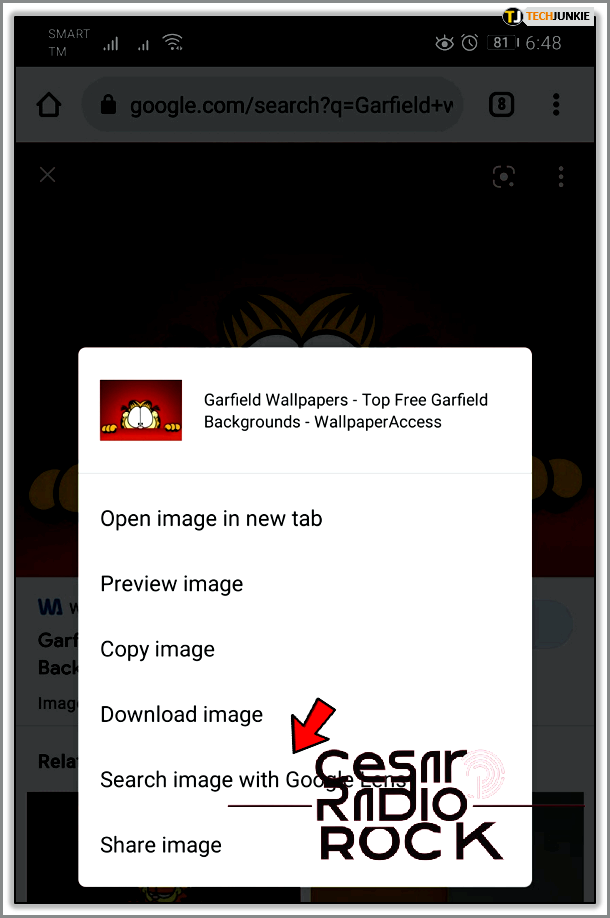
- Google will show you the results in a new tab.

These steps are for an Android phone. Here’s how our result looks:
Search Tools
Google also lets you refine your search using the search tools. Just click on the “Tools” button below the search box on the results page.
In the “Search by image” drop-down menu, you can choose to search for identical images, visually similar images, or images of different sizes. The “Time” drop-down menu allows you to choose a specific time frame or even set a custom range.
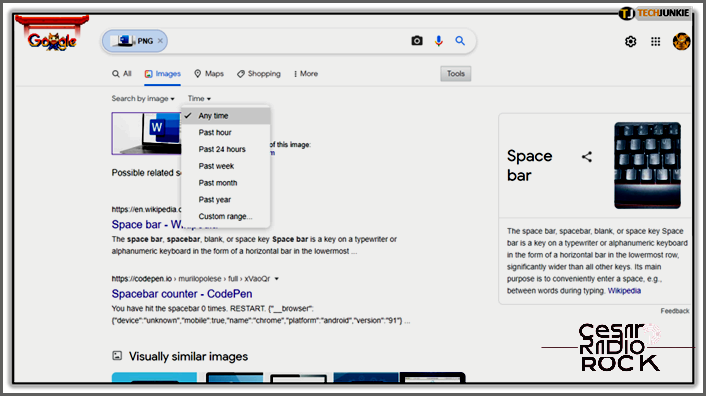
The Settings button, represented by a cog icon, gives you the power to control the visibility of your private data, switch the SafeSearch function on and off, and make other adjustments to your search preferences.
Discover Your Images Across the Internet
Don’t fret if you stumble upon your picture posted elsewhere without your permission. You have options. You can kindly request that the uploader take down the image or, if you feel like it, ask for proper acknowledgment. In serious cases, you can even explore legal action.
Have you ever encountered your photo being shared without your knowledge? How did you handle the situation? Have you ever utilized Google’s reverse image search? If yes, what aspects do you appreciate and what do you think can be enhanced? Feel free to share your reflections in the comments section below.
